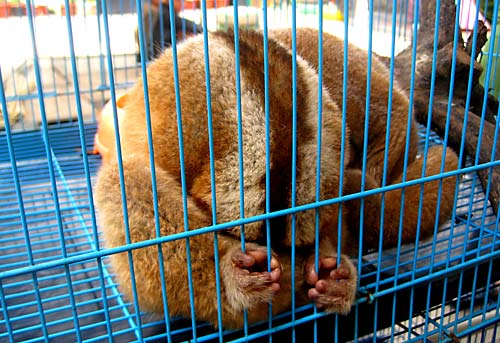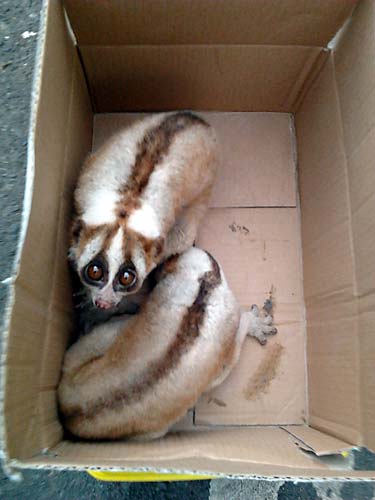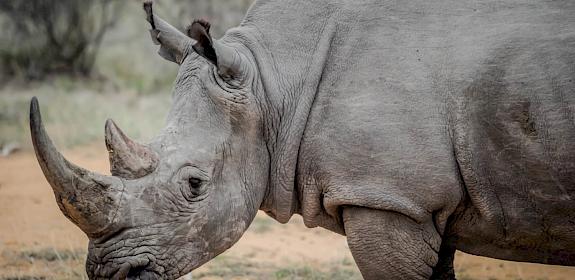Loris trade not so slow
Jakarta, Indonesia, 3rd April 2012—Despite global efforts to halt the growing demand for slow lorises as exotic pets, the primates continue to be offered for sale, with 50 individuals found in Jakarta’s animal markets over the past fortnight.

Although totally protected under Indonesian law, slow lorises were also observed for sale in shopping malls and at a flora and fauna exhibition, designed to raise awareness of Indonesia’s rich biodiversity.
Only a week ago, 30 were seen on sale during a single visit to Jati Negara market, where slow lorises are openly sold on a daily basis.
Ranking high on the cute-and-cuddly scale, slow lorises have long been in demand as exotic pets. The problem gained international prominence after a 2009 YouTube video of a slow loris being tickled went viral.
Several international and local groups have subsequently launched online campaigns petitioning for the removal of such videos.
A recent BBC documentary on the Slow Loris of Indonesia fronts a renewed call to educate consumers and end the illegal trade in the animals.

Nevertheless, slow lorises are still a common sight in wildlife markets in some Southeast Asian countries, particularly those in Indonesia, where markets such as Jati Negara are found in most major centres.
Other markets in Jakarta, such as the well known Pramuka Market, are also major centres for illegal wildlife trade.
“The authorities need to clean up these markets and Indonesia’s reputation as a major centre of illegal wildlife trade,” says Chris R. Shepherd, Deputy Regional Director of TRAFFIC Southeast Asia.
“The openness of the slow loris trade highlights the fact that having one of the region’s best wildlife protection laws and promising to protect species is not enough—there must be stronger enforcement in Indonesia and the public should stop supporting the illegal wildlife trade,” says Shepherd.
There are three slow loris species in Indonesia and trade is a major threat to all. The Greater Slow Loris Nycticebus coucang and the Bornean Slow Loris N. menagensis are listed by the IUCN Red List as Vulnerable, and the Javan Slow Loris N. javanicus, is listed as Endangered.
“Indonesia has an amazing array of unique wildlife and it is time real action is taken to protect it,” says Shepherd.




